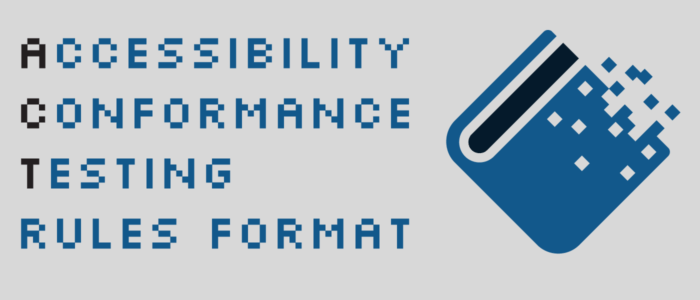What does the W3C’s upcoming ACT standard mean for accessibility?
One of the challenges organizations face when they are first introduced to accessibility is finding the right tools and services. Many organizations promise cheap and easy solutions that are based on rulesets they created. If you are new to the field and trying to assess automated testing tools for accessibility, it is difficult to know which tools and vendors have the right interpretation of WCAG or Section 508, that will help your company achieve accessibility compliance.
There are several initiatives underway to improve the transparency, consistency, and quality of standards in the digital accessibility industry. For example, the Department of Homeland Security’s (DHS) Trusted Tester Program aims to provide consistent testing, tooling, and reporting methodologies for Section 508. Additionally, the International Association of Accessibility Professionals (IAAP) certification provides an industry standard for accessibility professionals.
W3C Harmonization of Accessibility Testers
The ACT rules by the W3C has us at Deque especially excited because they will act as a baseline for automated testing tools and manual testing methodologies that interpret WCAG for particular technologies. By aligning tools and test methodologies with this baseline, the consistency and quality will be improved.
Yesterday, the W3C announced that the Accessibility Conformance Testing (ACT) Rules Format is going into the last phase before becoming a W3C standard. The ACT Rules Format is a standard that describes how to write high-quality automated rules and manual testing methods, such as the automated accessibility rules used in axe, Attest, Assure, and Comply. Through this work, Deque and other industry leaders are developing a set of rules, that can be used as a benchmark for the quality of accessibility testing tools and manual testing methodologies.
What ACT Means for Deque?
Keeping true to our slogan of being the “standard in accessibility,” Deque has been leading much of the work of developing these rules for accessibility. Deque also aims for axe-core to be among the first to adopt these W3C supported rules for accessibility testing.
The ACT Rules community group now has drafts of various rules available. Once the ACT Rules Format is published, they will start sharing these with the W3C for publication on the W3C website. This will likely happen in the latter part of this year. If you are interested in accessibility testing, the ACT Rules community group is an open community. They are always looking for contributors and reviewers, so feel free to join the ACT-R community.
